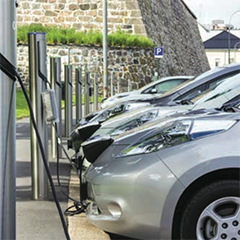Electric vehicles have the potential to revolutionise how electricity is consumed, says David Porter, POWER-GEN Europe Advisory Board Member and a Senior Advisor to the London energy team of Navigant. But, he argues, the engineering challenges should be seen alongside the social and economic considerations.
Electric vehicles are an exciting prospect. With smart grids, they may revolutionise how electricity is consumed across Europe
– not least in the volume, timing and location of demand. However, people who are keen to see the switch to electric transport should not underestimate the scale of the other challenges that have to be addressed before the use of electric vehicles becomes the norm.
Utilities are concerned with making networks robust enough to cope with new expectations and with having to manage them differently. Smarter grids go with smarter metering and data handling. All those things – already on the agenda – are demanding enough, but the challenges do not stop there.
Electric vehicles will be quieter and cleaner; they may even offer lower fuel costs and if climate change targets are to be met, sooner or later, a reduction in emissions from transport has to play a big part. But, electric vehicles will be judged by their users against what has served us so well for so long. We are used to being able to refuel in five minutes and to drive all day if we want to – in air-conditioned comfort.
The car and battery manufacturers are trying hard to match that by breaking through today’s knowledge barriers. But already the alternative solution of a fuelling station where – rather than re-charge – we would swap a discharged battery for a charged one, is being considered. However, would muscle power become a requirement for working in those places? Or, would that challenge be met with battery standardisation and specialised handling gear?



























